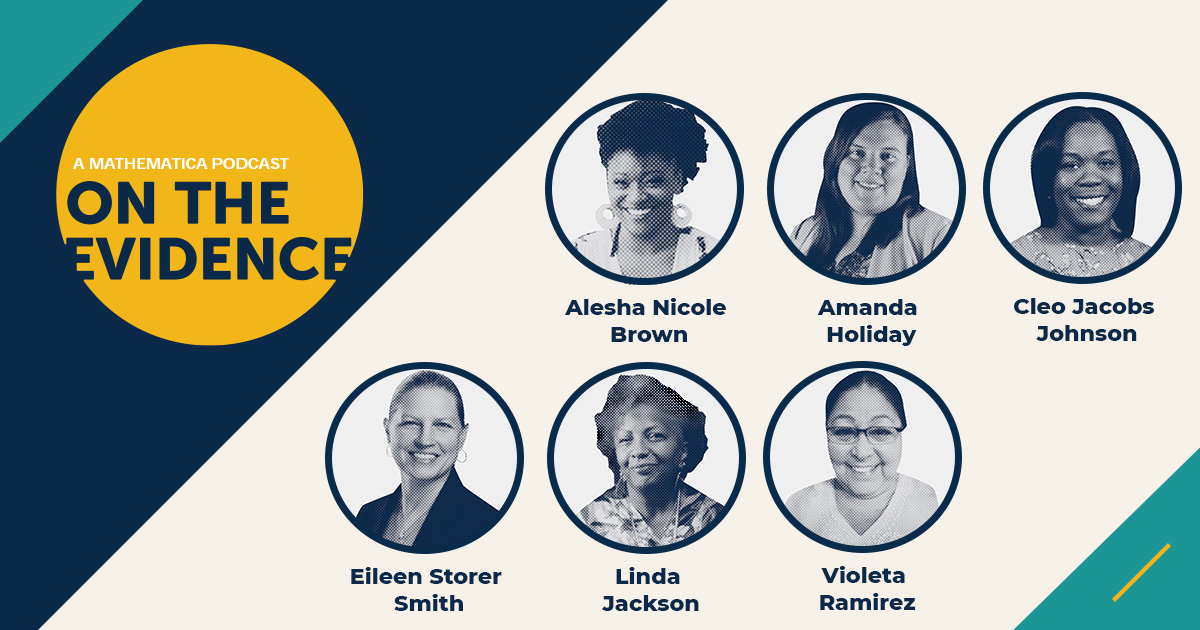The COVID-19 pandemic shined a light on the importance of universal access to affordable, high quality child care. For many racial and ethnic minorities in the United States, however, that access has been a long-standing issue. A 2017 CLASP report noted the structural racism that creates and perpetuates inequities and the fragmented U.S. child care system for young children ages birth to 5 years, hinder many people in racial and ethnic minority groups from accessing child care. Quality child care is an important part of any work to advance equity because families need it to achieve economic stability and provide their children with culturally competent care and enriching learning opportunities. To meet their needs, many families have to piece a child care plan together by considering public preschool programs, licensed child care centers, licensed home-based care, and informal care.
Informal care, or unlicensed care from family, friends, and neighbors, helps many families access child care—with its role becoming even more critical during the pandemic as licensed child care settings closed or reduced capacity. Yet informal providers are often-overlooked members of the child care industry. They need support such as convenient access to training programs and educational opportunities. Without support, informal providers might not be equipped to take advantage of their role as young children’s earliest teachers.
We spent several years learning about informal care with the David and Lucile Packard Foundation in the Bay Area and the W.K. Kellogg Foundation in Detroit. This work has helped us develop insights into the critical role that informal providers can play in advancing equitable access to high quality care, and the support they will need to do it.
Based on our partnership with these foundations, we recommend five important steps that other foundations and community partners can take to support informal providers, enhance the quality of care they provide, and positively influence children’s readiness for school and success in life.
- Partner with organizations interested in supporting informal providers, and engage them equitably
Creating equity in the child care industry will require a systematic approach to supporting informal providers. This should include engaging with organizations that are acquainted with community residents’ needs, focused on the well-being of children and families, and familiar with how residents piece together different forms of child care. Recognizing that each organization will have different strengths, staff capacities, and resources to support informal providers, we recommend taking time to understand their unique characteristics and how these characteristics affect the work at hand.
Promoting equity should be the goal of interacting and partnering with these organizations. One way to promote equitable interactions is to use human-centered design to accommodate different personalities and types of learners, ensuring that all individuals feel comfortable sharing their perspectives. In our work in Detroit, we formed a learning collaborative with diverse organizations and conducted activities with a human-centered design to establish rapport among the organizations and develop guidelines and materials for the collaboration.
- Invest time and resources to identify informal providers
To support informal providers effectively, organizations should invest time to identify informal providers and understand their needs. Informal providers are not always easy to identify because, unlike licensed child care providers, they do not have to register with any regulatory agency, and some may not want to be found because they fear the stigma and legal penalties associated with providing unlicensed care. Others might not consider themselves to be child care providers, instead thinking of the care they provide as babysitting or helping family.
To identify informal providers, we recommend connecting with the agency in your state that offers child care subsidies if informal providers are eligible for them. (Each state receives federal funding for child care subsidies.) Also, organizations should consider whether they have already engaged with informal providers through their current programs and services without realizing it.
Taking time to build trusting relationships with informal providers so they feel safe discussing the care they provide to children is also important. In our work in the Bay Area and Detroit, we found that starting an in-depth conversation by asking, “Do you watch kids that aren’t your kids?” was a way to identify informal providers, validate their lived experiences as child care providers, and empower them to think of themselves as young children’s earliest teachers.
- Tailor support to specific needs and listen to feedback
It is important to tailor the support given to informal providers because the group is diverse. Providers in a single community will likely vary in their race, ethnicity, immigration status, and income level. Organizations must take the time to identify informal providers’ needs, design customized support tailored to those needs, ask them for feedback about the support, and engage in continuous quality improvement. In our work in Detroit, we used the Learn, Innovate, Improve (LI2) framework to organize these activities and offer informal providers three unique series of Spanish- and English-language workshops on various child care topics such as incorporating arts, dance, and drama in home-based child care. Participating in these workshops enabled informal providers to obtain information and resources on topics of interest and new topics that could help address their needs.
- Seek input from everyone involved to support continuous quality improvement
Collecting and analyzing data from everyone involved in the effort to support informal providers is necessary for three main reasons. First, it helps assess whether the support meets the needs of informal providers and has the potential to enhance the quality of care informal providers offer children. Second, the process is necessary to perform continuous quality improvement. And third, it can gauge how everyone involved can collaborate to meet their goals. Thus, we recommend asking community partners and informal providers for feedback often to develop a complete picture of the usefulness of the support and opportunities for improvement.
In Detroit, we sought input in several ways. We interviewed organization staff to understand facilitators and challenges to participating in the learning collaborative and implementing supports for the informal providers. We held focus groups with informal providers to learn about their experiences as caregivers and in using the supports. We also surveyed informal providers at the beginning and end of the implementation period to assess their knowledge of child development. Finally, we collected program data and participants’ demographic information to understand the informal provider population. To help staff at organizations make more informed decisions in their work, we also shared successes and opportunities for supporting informal providers.
- Celebrate progress publicly and draw attention to ongoing issues
Consider convening informal providers to amplify their work and celebrate their role as young children’s earliest teachers. Foundations and their community partners can also share best practices through presentations and written products. Sharing information can help others understand how informal providers work to meet child care needs, particularly those of racial and ethnic minorities. This practice can sustain and amplify the support they offer. The information sharing would also link informal providers to available support and draw attention to their outstanding needs. Sharing information in various languages and literacy levels would help ensure the information is accessible to a variety of audiences.
The time is ripe to use evidence-based practices grounded in local context to enhance the way we support informal child care providers in the United States. We plan to keep sharing information about our work through various channels to highlight informal providers’ strengths and needs, offer recommendations that can enhance the resilience of informal child care providers, and draw attention to practices that can sustain and scale this support to address inequity in the U.S. child care system.
To learn more about evidence and lessons generated from our work on understanding and supporting providers of informal child care, we invite you to explore the following resources:
- Supporting Informal Child Care Providers in Detroit
- Lessons from Southwest Detroit's Efforts to Support Informal Child Care
- Child Care Amid the COVID-19 Pandemic: Supporting Informal Child Care Providers and Families
- Informal Child Care in Detroit
- Characteristics of Informal Child Care Arrangements and Social Support in Detroit
- Supporting High Quality Informal Child Care in Detroit





